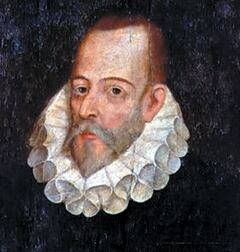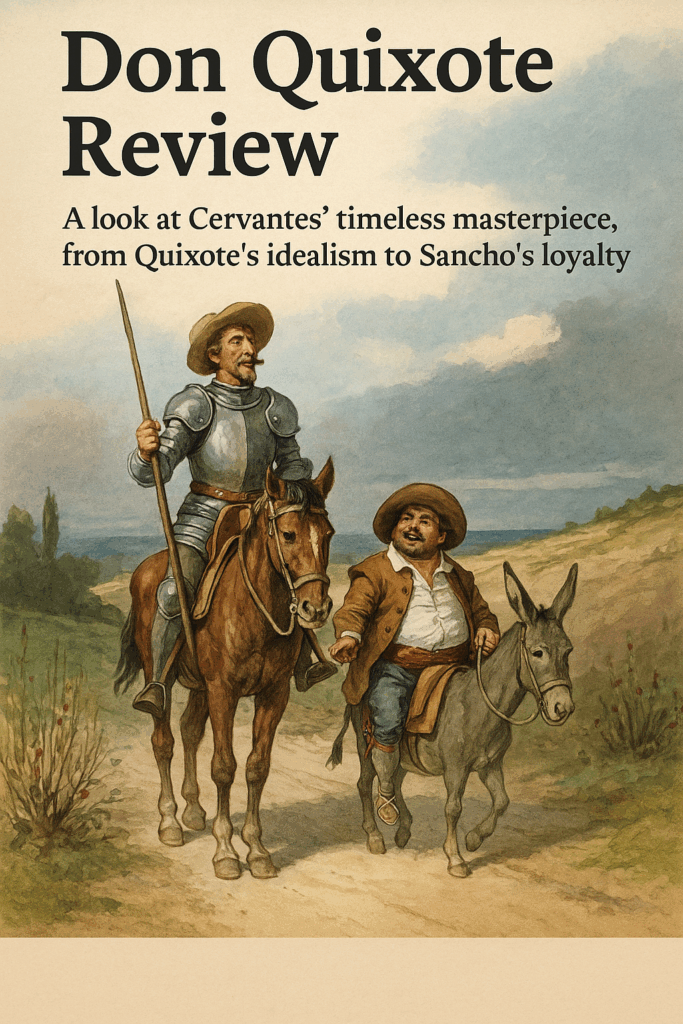Don Quixote Review: At the crossroads of delusion and virtue, an aging man draws his sword—and literature changes forever.

The Gentleman from La Mancha
Don Quixote, formerly Alonso Quixano, is a rural nobleman who reads too many chivalric romances. Eventually, the line between fiction and reality crumbles. He arms himself with a rusty lance, mounts his emaciated horse Rocinante, and renames himself Don Quixote de la Mancha, knight-errant and avenger of the oppressed.
He believes he is on a mission of justice. The world sees him as mad. But perhaps madness is a mirror to sanity in a world long devoid of meaning.
Sancho Panza: A Companion with Common Sense
Sancho Panza, a simple farmer, becomes Don Quixote’s squire. At first driven by dreams of wealth and power, Sancho soon becomes entangled in his master’s visions. As they journey, Sancho evolves—from skeptic to believer, from bystander to participant.
In this strange duo, the interplay between idealism and realism breathes life into every chapter.
The Windmill Incident: Symbol or Satire?
The most iconic scene: Don Quixote charges at windmills, mistaking them for giants. Readers laugh. The image is absurd.
But underneath the comedy lies a somber truth: Don Quixote’s world is gone, and his fight is futile. Still, he charges—not for glory, but for principle.
The windmills win, but Don Quixote does not lose.
The Duke and Duchess: A Game of Cruel Amusement

In Part II, Don Quixote’s fame reaches the nobility. A Duke and Duchess invite him and Sancho into their estate—not to honor them, but to mock them.
They fabricate quests, manufacture honors, and use them for entertainment. Yet amid the deceit, Quixote remains steadfast. Sancho, despite being a puppet governor, makes wiser decisions than most real politicians.
The False Sequel and the Author’s Revenge
A fraudulent sequel prompts Cervantes to publish the authentic Part II. Within it, Don Quixote and Sancho read and ridicule the fake book. The metafictional twist is sharp: fiction becomes self-aware, and Cervantes takes control of his narrative.
It is the birth of modern literary satire.
The End: When the Knight Awakens
Defeated by the Knight of the White Moon (actually a friend in disguise), Don Quixote returns home. He renounces his adventures, reclaims his real name, and quietly dies in bed.
His mind clears just before the end, as if to say: the dream was worth it, even if it had to end.
Don Quixote is more than a fool with a lance. He’s every soul who dared to believe when the world stopped caring.